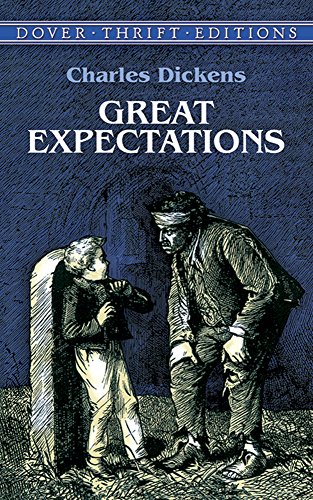All Nonfiction
- Bullying
- Books
- Academic
- Author Interviews
- Celebrity interviews
- College Articles
- College Essays
- Educator of the Year
- Heroes
- Interviews
- Memoir
- Personal Experience
- Sports
- Travel & Culture
All Opinions
- Bullying
- Current Events / Politics
- Discrimination
- Drugs / Alcohol / Smoking
- Entertainment / Celebrities
- Environment
- Love / Relationships
- Movies / Music / TV
- Pop Culture / Trends
- School / College
- Social Issues / Civics
- Spirituality / Religion
- Sports / Hobbies
All Hot Topics
- Bullying
- Community Service
- Environment
- Health
- Letters to the Editor
- Pride & Prejudice
- What Matters
- Back
Summer Guide
- Program Links
- Program Reviews
- Back
College Guide
- College Links
- College Reviews
- College Essays
- College Articles
- Back
Great Expectations by Charles Dickens
The Book Great expectations was first published in 1860. The theme throughout the novel is about ambition and self-improvement. The moral theme of great expectations is: affection, loyalty, and a conscience and more important than social advancement, wealth, and class. In the novel Great Expectations, Charles dickens tells a story about Pip, an English orphan who rises to wealth, deserts his true friends, and becomes humbled by his own arrogance. It also introduces one of the more colorful characters in literature: Miss Havishman. Philip Pirrip better known to the world as Pip is the most important character in the novel. He is both the protagonist and the antagonist. His actions make up the main plot of the story. His thoughts and attitude shapes the readers perception of the story. The main conflict in the story is that Pip attempts to achieve great things for himself while still holding on to his morals and values along the way. He must distinguish what means the most to him and figure out where priorities lay. Are wealth and social advancement more important to him than loyalty and character? The change he goes through from a young boy to a man challenges his values when he is forced to make important life-altering decisions.
Similar Articles
JOIN THE DISCUSSION
This article has 0 comments.

